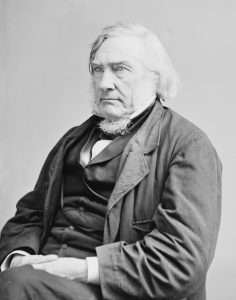It's over for the infamous Craig Wright, one of Bitcoin's early developers who actually did work with Bitcoin inventor Satoshi Nakamoto, then in recent years begun to claim he was Satoshi himself.
A ruling by a High Court judge in London on Monday (May 20) determined that the Australian computer scientist Craig Wright provided false testimony and fabricated documents to substantiate his unsubstantiated assertion of being the inventor of bitcoin.
Judge James Mellor, in a decision rendered in March and with reasons outlined on Monday as reported by Reuters, concluded that the evidence did not support Wright's claim to be the pseudonymous "Satoshi Nakamoto" behind bitcoin's creation. The judge found that Wright had been deceitful and had forged documentation to bolster his inventor claim, and that Wright's legal actions against bitcoin developers as well as his expressed views on bitcoin contradicted his purported status.
Developers Feel Relief Following Ruling...
Wright's legal attempt, had it succeeded, would have given him the right to sue anyone who built anything on Bitcoin's network, as he would become the copyright holder to Bitcoin's code.
In a blog post on Monday following the ruling, a Crypto Open Patent Alliance (COPA) spokesperson said that the judgment "forensically demolishes Wright's fraudulent claims."
"This decision is a watershed moment for the open-source community and even more importantly, a definitive win for the truth," a COPA spokesperson said. "Developers can now continue their important work maintaining, iterating on and improving the bitcoin network without risking their personal livelihoods or fearing costly and time-consuming litigation from Craig Wright."
Wright Vows To Appeal...
On X (formerly Twitter), Wright stated on Monday: "I fully intend to appeal the decision of the court on the matter of the identity issue. I would like to acknowledge and thank all my supporters for their unwavering encouragement and support."
Wright first came forward with his claim to be bitcoin's creator in May 2016, making the assertion to three publications — the BBC, The Economist, and GQ — and sending digitally signed messages using cryptographic keys created during bitcoin's early development days.
"These are the blocks used to send 10 bitcoins to Hal Finney in January [2009] as the first bitcoin transaction," Wright stated at the time during his demonstration.
However, by December 2019, when a Florida judge ruled that Wright's late partner was entitled to half of the bitcoins Wright mined through 2013 and half of the related intellectual property, some crypto experts were skeptical of Wright's claims, viewing them as fraudulent.
-------
Author: Mark Pippen
London Newsroom
GlobalCryptoPress | Breaking Crypto News













 Bengali (Bangladesh) ·
Bengali (Bangladesh) ·  English (United States) ·
English (United States) ·